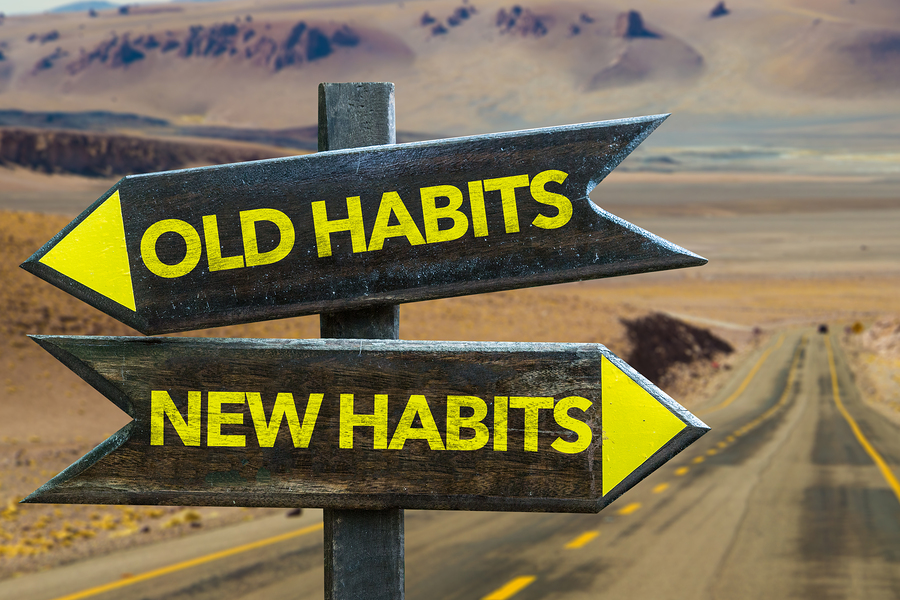- Make It Yourself Lavender Heart-Shaped Bath Bombs!
- 20 Things You Never Knew About “Down There”
- 12 Best Foods For Those Suffering From Arthritis Pain
- 12 Personal Hygiene Mistakes Almost Everyone Makes (Mom Never Told You About #4!)
- 15 Medicinal Plants And Herbs From The Cherokee People
- 12 Mind-Blowing Benefits Of Drinking Coconut Water During Pregnancy
- 12 Outstanding Winter Foods That Won’t Fatten You Up Like A Christmas Turkey
Does Nutrition Really Affect Your Stress Levels?

Photo credit: bigstock.com
If there is one thing everyone seems to want less of, it’s stress. When you think about it, what is considered a “modern” lifestyle really isn’t natural at all. The 9-5 work day, commuting, paying bills, the 24-hour news cycle, the stock market, traffic, busy, congested cities … it’s a lot to take in and process. Human beings have existed in their anatomically modern form for some 180,000 years, yet for only the last century or so have we lived at such a frantic pace. It has gotten even faster in just the last 10 years with the proliferation of social media and high-speed Internet.
Only a few millennia ago, our ancestors were hunting and foraging for their meals (and some humans still do). A couple thousand years is not even a blink of an eye in evolutionary terms. It’s no wonder so many people find their lives stressful. In some ways, our brains were not evolved for this.
Over time chronic stress can take a serious toll on our health, leading to a weakened immune system and even earlier death. But there is some good news:
1. Our brains may not be “evolved” for the modern lifestyle, but they are highly adaptable. By making some simple changes in our lives, we can drastically reduce the levels of stress we experience.
2. Nutrition also plays a big role in your ability to withstand stress. In this article, we’ll explore how improving your diet can improve your quality of life.
How Chronic Stress Affects Your Health
In order to understand how stress affects your health, one must understand what the feeling we call “stress” actually is. Stress your body’s response to factors in the environment that it perceives as a threat to your survival. It is designed to protect you from predators and other physical dangers. While you probably don’t have to worry about those things today, this automatic response can still be triggered by things that occur in everyday life, such as drama at work or in a relationship, financial problems, etc.
While the stress response is meant to protect you, it can also be self-destructive. When you are continuously in a state of stress — that is, chronically stressed — it can have serious effects on your health. When you perceive a “threat,” your hypothalamus, a small primitive region in the base of the brain sends a signal to release adrenaline, which gives you energy, and elevates your blood pressure, heartrate, and alertness. It also produces the so-called “stress hormone” cortisol. This hormone increases blood sugar levels and helps you produce more energy in what the brain perceives to be an emergency situation.
When this “fight or flight” response occurs at an appropriate time, it may very well save your life. The problem is that it can be triggered at inappropriate times, such as during everyday stresses like those mentioned above. When you are chronically experiencing this physiological reaction all the time, it can wear your body down in a number of ways, including:
- Weakened immune system
- Anxiety
- Weight gain
- Increased risk of cardiovascular disease
- High blood pressure
- Insomnia
- Indigestion
- Depression
- Cognitive problems like trouble with memory and concentration
First things first
It is important to identify what is causing your stress so you can begin to take steps to eliminate those things. Sometimes simply saying “no” more often and taking on fewer obligations is all it takes. Other times it can be a matter of reducing the amount of time you spend around a certain person or group. Obviously, everyone’s situation is different, but no approach to reducing stress is complete without taking these steps.
Continue to Page 2

Photo credit: bigstock.com
The Role Nutrition Plays in Stress Reduction
It turns out that in addition to making lifestyle changes, what you eat can actually affect your ability to deal with stress in a big way. It’s no secret that many people eat terrible diets nowadays, and that’s part of the problem. Just as how putting a low-quality fuel in your car will make it run poorly, putting a higher quality “fuel” in your stomach will allow your body to “run” in an optimal fashion. This includes improving your ability to tolerate stress.
A study conducted at Canterbury University in New Zealand set out to explore the relationship between nutrition and resilience in the face of a stressful event. In 2011, an earthquake struck the region surrounding Christchurch, New Zealand, killing 185 people and leaving hundreds injured and displaced. In the months that followed, there was also a series of smaller aftershocks.
The participants in this study were all adults who were experiencing “high anxiety and stress” following the quake and aftershocks. It was determined that 65 percent of the participants were experiencing some form of post-traumatic stress disorder (PTSD). They were divided into four groups. The first group received a high-dose multivitamin, the second group received a lower-dose multivitamin, the third group received only B-vitamins, and a fourth group received no supplements in order to serve as a control.
The study lasted four weeks, and found that the adults in the “high-dose” group experienced the most benefits, with 52 percent describing a significant reduction in their levels of daily stress and anxiety. The low-dose and B-vitamin only groups saw less improvement, while the control reported no change at all.
Getting more vitamins on a regular basis improves your overall health and constitution, and as this study shows, it can help your body recover from stress and reduce the effects that consistent, ongoing anxiety has on the body.
READ ALSO: The Real Reasons You Hold on to Stress, Even Though it’s Killing You
Everyone reacts to stress in different ways, and truly traumatic experiences can affect anyone, so one should not base their treatment on just one article. Think of this more as a health “best practice” for defending against stress. Talk to your doctor, or a mental health professional if needed, if you have serious chronic stress for the best guidance on how to improve your situation.
References:
































